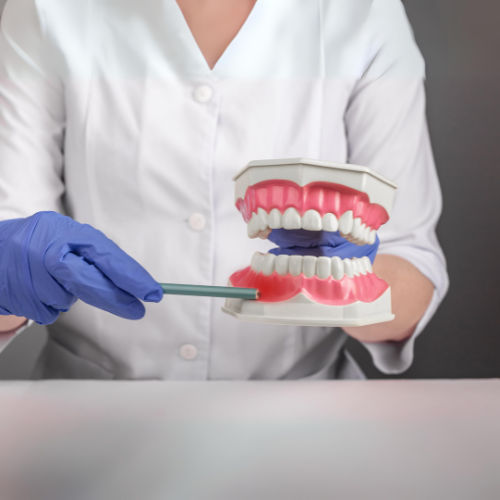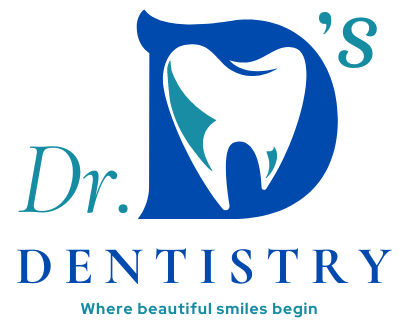Tooth decay is one of the most common yet preventable chronic conditions in children. By establishing healthy habits early on, parents can help protect their children from cavities and ensure they grow up with strong, healthy teeth. Good oral hygiene, a balanced diet, and regular dental visits are key factors in keeping tooth decay at bay. Here’s how you can help your child develop the habits needed for a lifetime of Healthy Habits teeth.
Why Early Prevention Matters
Preventing tooth decay from an early age is crucial because dental health significantly impacts a child’s overall well-being. Healthy Habits teeth are essential for:
- Eating and Nutrition: Strong teeth allow children to chew food properly, ensuring they get the necessary nutrients for growth and development.
- Speech Development: Teeth play an important role in proper speech articulation and development.
- Self-Esteem: A Healthy Habits smile can boost a child’s confidence and social interactions, especially as they grow older.
Neglecting early oral health can lead to cavities, gum disease, and other dental problems that may affect a child’s ability to eat, speak, and feel confident. Additionally, untreated tooth decay can lead to infections, pain, and even tooth loss, making early prevention critical.
The Building Blocks of Healthy Habits
- Start Dental Care Early
Oral care should begin before a baby’s first tooth even erupts. Here are the steps to follow:
- Clean Gums: Wipe your baby’s gums with a clean, damp cloth after feedings to remove bacteria and prevent the buildup of plaque.
- Brush First Teeth: Once the first tooth appears, start brushing it with a small, soft-bristled toothbrush and a tiny smear of fluoride toothpaste (about the size of a grain of rice).
- Schedule the First Dental Visit: Your child should visit the dentist by their first birthday or when the first tooth comes in. Early dental visits help monitor tooth development and establish good dental practices from the start.
- Brush and Floss Daily
Teaching your child the importance of brushing and flossing daily sets the foundation for lifelong oral hygiene. Here’s how to get them started:
- Brushing: Children should brush their teeth twice a day—morning and night—with fluoride toothpaste. For children under 3 years old, use a smear of toothpaste; for those 3-6 years old, use a pea-sized amount. Supervise your child’s brushing until they can do it effectively on their own, usually around age 7 or 8.
- Flossing: Once your child’s teeth start touching, it’s time to introduce flossing. Flossing helps remove plaque and food particles from between the teeth, areas where a toothbrush can’t reach.
- Limit Sugary Foods and Drinks
Sugary foods and drinks fuel the bacteria in the mouth that produce acids, which attack tooth enamel and cause decay. To prevent tooth decay:
- Reduce Sugary Snacks: Limit candy, cookies, and other sugary snacks. Instead, opt for Healthy Habits snacks like fruits, vegetables, cheese, and yogurt.
- Avoid Sugary Beverages: Water should be the go-to drink for your child, while sugary drinks like soda, fruit juices, and sports drinks should be kept to a minimum.
- Choose Tooth-Friendly Foods: Offer foods that promote oral health, such as crunchy fruits and vegetables (which stimulate saliva production and help clean teeth), dairy products (which provide calcium and phosphate to strengthen enamel), and lean proteins (which help rebuild tooth enamel).
- Establish a Routine
Consistency is key when building good oral health habits. Establish a routine that includes brushing after meals, flossing before bed, and making regular dental visits a priority. Children thrive on routine, and over time, these practices will become second nature.
- Make Dental Care Fun
Dental care doesn’t have to be a chore! Here are some creative ways to make oral hygiene fun for kids:
- Use a Timer: Use a two-minute timer or play a song that lasts two minutes to encourage your child to brush for the full recommended time.
- Reward Systems: Create a sticker chart where your child earns a sticker for each successful brushing session. After earning a certain number of stickers, they can get a reward, like a small toy or extra playtime.
- Fun Tools: Let your child pick out a toothbrush with their favorite character or a flavored toothpaste they enjoy. The more fun and personal the experience is, the more likely they are to stick with it.
- Fluoride: Nature’s Cavity Fighter
Fluoride is a key component in preventing tooth decay because it strengthens tooth enamel, making it more resistant to acid attacks. Here’s how to incorporate fluoride into your child’s dental care:
- Fluoride Toothpaste: Use fluoride toothpaste when brushing your child’s teeth to help protect them from cavities.
- Fluoridated Water: In areas where tap water is fluoridated, make sure your child drinks plenty of water throughout the day. If your area does not have fluoridated water, speak to your dentist about fluoride supplements.
- Fluoride Treatments: During regular dental visits, ask your dentist about fluoride treatments for added protection, especially if your child is at high risk for tooth decay.
- Visit the Dentist Regularly
Routine dental checkups are essential for preventing tooth decay and catching problems early. Your dentist can provide professional cleanings, apply protective fluoride treatments, and offer advice specific to your child’s needs. Regular visits also allow the dentist to monitor your child’s oral development and recommend preventive measures like sealants, which can protect the back teeth from cavities.
- Protect Teeth with Sealants
Dental sealants are a thin, protective coating that is applied to the chewing surfaces of the back teeth, where cavities are most likely to form. Sealants act as a barrier, keeping food and bacteria from getting trapped in the deep grooves of the teeth. Talk to your dentist about when sealants might be appropriate for your child, typically around age 6 when the first permanent molars come in.
The Role of Parents in Oral Health
Parents play a crucial role in ensuring their children develop and maintain healthy habits. By setting a good example and making dental care a positive experience, you help establish behaviors that will last a lifetime. Encourage your child to take responsibility for their oral health, but be there to guide and supervise them until they can effectively manage it on their own.
The Long-Term Benefits of Early Prevention
The habits your child develops early on will have a lasting impact on their oral health and overall well-being. By preventing tooth decay in childhood, you can help reduce the likelihood of more serious dental problems down the road, such as gum disease, misalignment issues, and the need for extensive dental treatments. Healthy habits not only protect your child’s teeth but also contribute to better health and higher quality of life as they grow.
Conclusion
Preventing tooth decay in kids starts with building healthy habits early. Through proper brushing, flossing, a balanced diet, regular dental visits, and fluoride use, you can help your child maintain strong, Healthy Habits teeth. Making oral care a fun and consistent part of your child’s daily routine will ensure that they develop the skills and habits necessary for a lifetime of good oral health. The earlier you start, the better the chances of keeping your child’s smile bright and Healthy Habits for years to come



